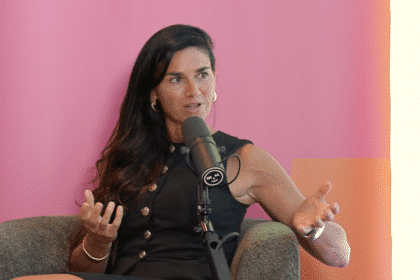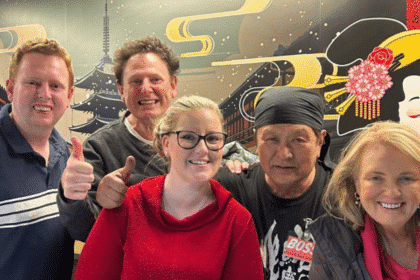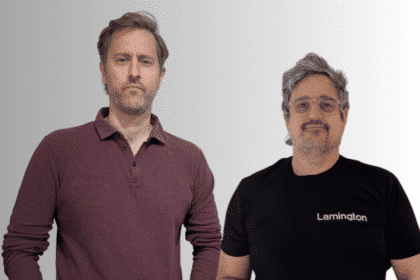The results are in for the second major study into the mental health and wellbeing of the media, marketing and creative industry in Australia.
The Mentally Healthy research, conducted by Everymind, Never Not Creative and UnLtd and supported by the Mentally-Healthy Change Group measures the levels of depression, anxiety and stress in our industry as well as the attitudes towards mental health in the workplace. It is a follow-up study to the first Mentally Healthy 2018 study that was completed 18 months earlier.
More than 1,500 employees across the media, marketing and creative industry participated in the survey, which took place during February and March this year. A further pulse-study was conducted in May 2020 to measure the impact of COVID-19 on the findings and was completed by over 560 participants.
Mentally Healthy used the Depression, Anxiety and Stress Scale (DASS) to identify symptoms of depression and anxiety in research participants. The findings showed that depression and anxiety levels had remained similar to those observed in 2018, with 56 per cent of respondents displaying mild to severe symptoms of depression, exactly as in 2018. Similarly with anxiety, 52 per cent displayed mild to severe symptoms of anxiety, compared to 55 per cent in 2018. The pulse study showed that in the short-term, COVID-19 had only a minor impact on mental health, with a minor increase in depression (58 per cent vs 56 per cent ) and a minor decrease in anxiety (46 per cent vs 52 per cent ) compared to the February results. Further research will be needed to explore if there are any longer-term impacts of COVID-19.
Whilst depression and anxiety remained commonplace, the 2020 results show a positive improvement in stigma around mental health. 24 per cent more respondents would now disclose if they had been diagnosed with depression compared to 2018. Similarly, 22 per cent more believed others would not be treated poorly if they disclosed a mental illness at their workplace.
At a workplace level, there was a clear difference between the perceived priority of mental health in their workplaces versus the perceived effectiveness of the workplace initiatives. Whereas 23 per cent of respondents perceived that mental health was a high priority in their workplace, only 6 per cent felt their organisation was highly effective in addressing mental health.
A key focus of the study was to identify initiatives that were perceived as effective and useful in improving wellbeing in the workplace. The areas that were perceived as most important for improving mental health in the workplace were empathetic, educated leaders who lead by example; appropriate structure and resources; flexible working conditions and clear objectives. At the other end, motivational posters, yoga, healthy food and mindfulness initiatives were listed as least important.
A total of 54 per cent of respondents showed mild to severe levels of stress, with 20 per cent showing signs of severe or extremely severe levels of stress, with no significant difference in the COVID-19 study. The biggest stressors remained consistent with the 2018 findings with the top three being the pressure of our own expectations, pressure from others and multiple responsibilities.
The study also showed that many of us are struggling with low quality of sleep and poor self-esteem with over half of respondents reporting bad quality of sleep and only 38 per cent ranking their self-esteem as high.
In terms of coping, most respondents showed preference for healthy coping methods however 45 per cent of respondents were consuming alcohol at risky or harmful levels. The COVID-19 pulse study further identified an increase in drinking with over 50 per cent stating their alcohol consumption had increased during the lock-downs. At the same time, many positive coping methods also increased during the pandemic with 47 per cent of respondents increasing their exercise and 79 per cent increasing talking to friends and family over video chats.
Nina Nyman, CMO of UnLtd and Co-Chair of Mentally Healthy Change Group said the results around stigma were encouraging: “It’s great to see the stigma numbers improving. The 2018 results identified high levels of stigma in our industry and a lot of the projects that the Mentally Healthy Change Group have been working on have focused on smashing the stigma and encouraging people to speak up when they need help. Whilst the depression and anxiety levels remained high, it seems that we are getting better at talking about our mental health and seeking help.”
Andy Wright, Founder of Never Not Creative and Co-Chair of the Mentally Healthy Change Group said leadership was the key in tackling mental health in the workplace: “The results show clear feedback on where people believe organisations should focus their efforts and it all starts with empathetic, educated leaders who lead by example. In an industry that has a relentless focus on the work, we need to start educating on what an intense focus on people looks like. It’s something that just isn’t taught enough and I know it’s something I was never taught. We’re products of our environment. We need to focus on this before investing in yoga lessons and mindfulness programs, if we want to improve things significantly.”
The mental health and wellbeing of Australians in every workplace setting is a shared responsibility according to Associate Professor Carmel Loughland, Acting Director of Everymind, the Institute who conducted the research. “There has never been a greater need or time to provide Australians with the opportunity to fortify their own resilience, mental health and wellbeing across every community and every setting. Make no mistake, this has been a tough time for many and we know people are struggling, especially those within the media, marketing and creative industry. We are dedicated to learning more, listening and exploring through research how and in what way we can support communities and individuals. We are determined to ensure the specific needs of those who make important contributions to the community such as individuals who work in media, marketing and creative industries are not only heard but addressed.”
If you or someone you care about needs support, please contact:
Lifeline 13 11 14
Suicide Call Back Service 1300 659 467
MensLine Australia 1300 78 99 78
Beyond Blue 1300 22 4636








